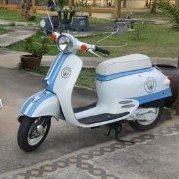Thailand's Coup May Benefit Markets, Economy
-
Recently Browsing 0 members
- No registered users viewing this page.
-
Topics
-
-
Popular Contributors
-
-
Latest posts...
-
41
Which bank do you use?
Bangkok Bank has never given me any problem. I have had several screwups with Kasikorn. -
93
Middle East Four journalists among 15 dead in Israeli strike on hospital
As you take pride in admitting it when you are wrong , often boast about how you are superior to others because you admit it when you are wrong . Will you be retracting your claim that I celebrated this incident ? Retract your claim and admit that you were wrong ? Are you going to back your claims up ? -
295
Road Rage (Foreigner Style)
Whereas, in a nutshell, a <deleted> is just a <deleted>. -
4
-
30
USA Trump's Shock Move: Fed Governor Lisa Cook Axed in Sudden Purge
obviously as we have a pedo associate running the govt based on those Epstein files IMHO anyway...just too much smoke during all those years of best friends. Reports keep leaking by some of the victims...we know Epstein"s girlfriend will say nothing about the orange one while she awaits a pardon for sex trafficking and sexual assault on young girls. IMHO a sad story and more of an embarrassment for our current government. -
30
USA Trump's Shock Move: Fed Governor Lisa Cook Axed in Sudden Purge
Except I wasn't speaking about his conviction and you know it. You said he doesn't have the right to fire her, you're wrong. But again, you knew that. It typical liberal fashion your dodge and deflect.
-
-
Popular in The Pub


.thumb.jpg.d9f3e54432a0ae65f4d5beb0d2d122ce.jpg)











Recommended Posts
Create an account or sign in to comment
You need to be a member in order to leave a comment
Create an account
Sign up for a new account in our community. It's easy!
Register a new accountSign in
Already have an account? Sign in here.
Sign In Now